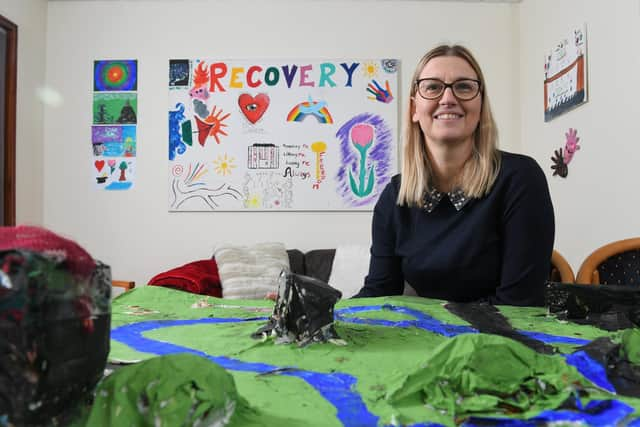SEED Lancashire: The Preston charity on the front line in the fight against eating disorders


"We were immediately inundated," Shelley added, with stats showing that eating disorders are responsible for more loss of life than any other mental health condition. "People were really struggling; they needed support. Once a month quickly went to once a fortnight with a weekly drop-in service and a carers' advice and information clinic."
The only service of its kind in the county, SEED Lancashire (Support and Education for Eating Disorders) is a registered charity in Preston which provides a network of support for sufferers of eating-, food-, or weight-related issues and their families, carers, and friends.
Advertisement
Hide AdAdvertisement
Hide AdFounded in 2007 by Chief Executive Shelley, who was born in Burnley and worked as a specialist mental health practitioner at the Royal Lancaster Infirmary and Royal Preston Hospital, SEED offers invaluable information, education, training, and support for anyone affected by or supporting individuals with eating disorders.


"We want people to feel equipped to support someone so that they then don't need intervention or so that they're ready for any necessary professional intervention," said Shelley. "There's a lot of really good work which can be done at that level. Giving people the time and space and compassion and listening to them helps them on the journey.
"Schools were contacting us to come and do talks about eating disorders, low self-esteem, and body image," she added. "They also wanted us to teach the teachers about how to recognise signs and symptoms of eating disorders and how to manage and support people at that early intervention level.
"Teachers were almost becoming dietitians and therapists and those were skills they didn't have; knowing when to refer someone on or to nurture them is crucial," Shelley continued. "The difference between someone who's anxious and upset and not eating and then someone who really needs more professional help is massive.
Advertisement
Hide AdAdvertisement
Hide Ad"There's a wide spectrum of cases which are covered by an umbrella term and it's difficult to know what to do without guidance."
Around 20 years ago, whilst studying at St. Martin's University in Lancaster, Shelley herself grappled with an eating disorder and approached her GP convinced that her problems were the result of a heady combination of physical, mental, and social issues. Working with medical professionals and a cognitive behavioural therapist whilst receiving further support from her local church, she was able to quell her issue.
With first-hand evidence that a more holistic biopsychosocial treatment model was far more effective for issues such as eating disorders - which affect between 1.25 and 3.4 million people in the UK, 25% of whom are male - Shelley set up SEED in an aim to 'fill a gap' which sorely needed addressing.
Providing a regular point of contact, SEED is not meant to be a replacement for therapy, treatment, or expert dietitians but holds regular self-help meetings and promotes positive self-esteem and body image, whilst also offering bespoke training and drop-in sessions to enable people to identify the signs of eating disorders.
Advertisement
Hide AdAdvertisement
Hide Ad"Early intervention is key and working with people is huge," said Shelley. "The remit of SEED is support, guidance, and education. All our support groups, the drop-in sessions, the carers' advice and information clinics: you don't need to book an appointment, just come along. We're really low-key and informal, there's no expectation, and you can stay as long as you like.
"Recovery is possible," she added. "We want to empower people; this is not a disorder people have to be stuck with for the rest of their lives."